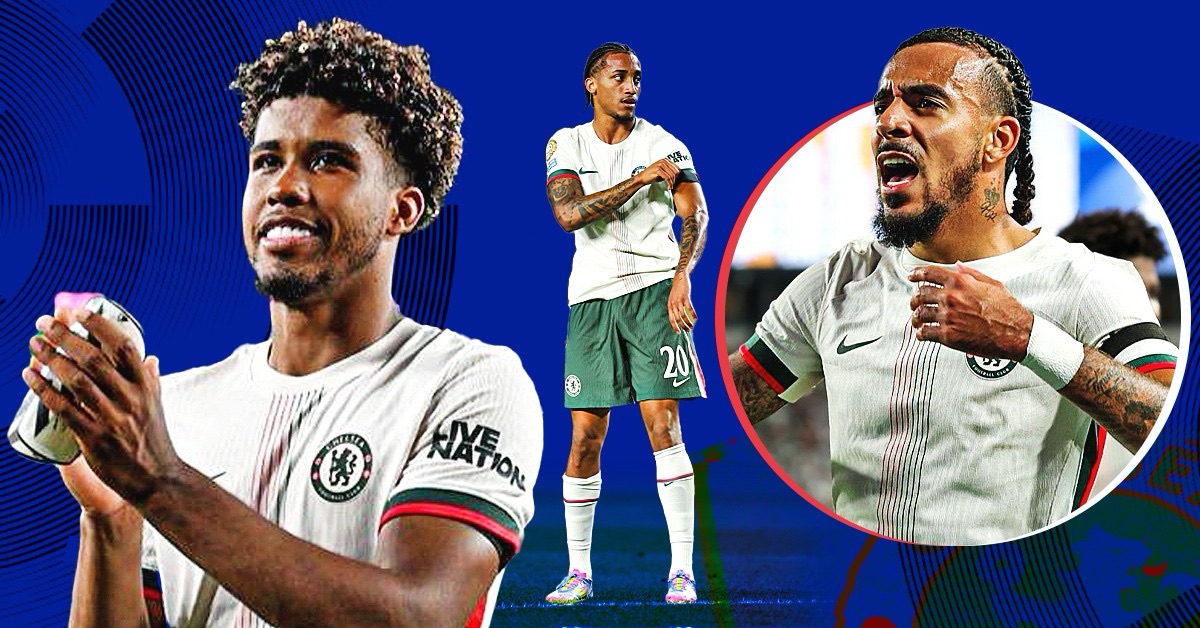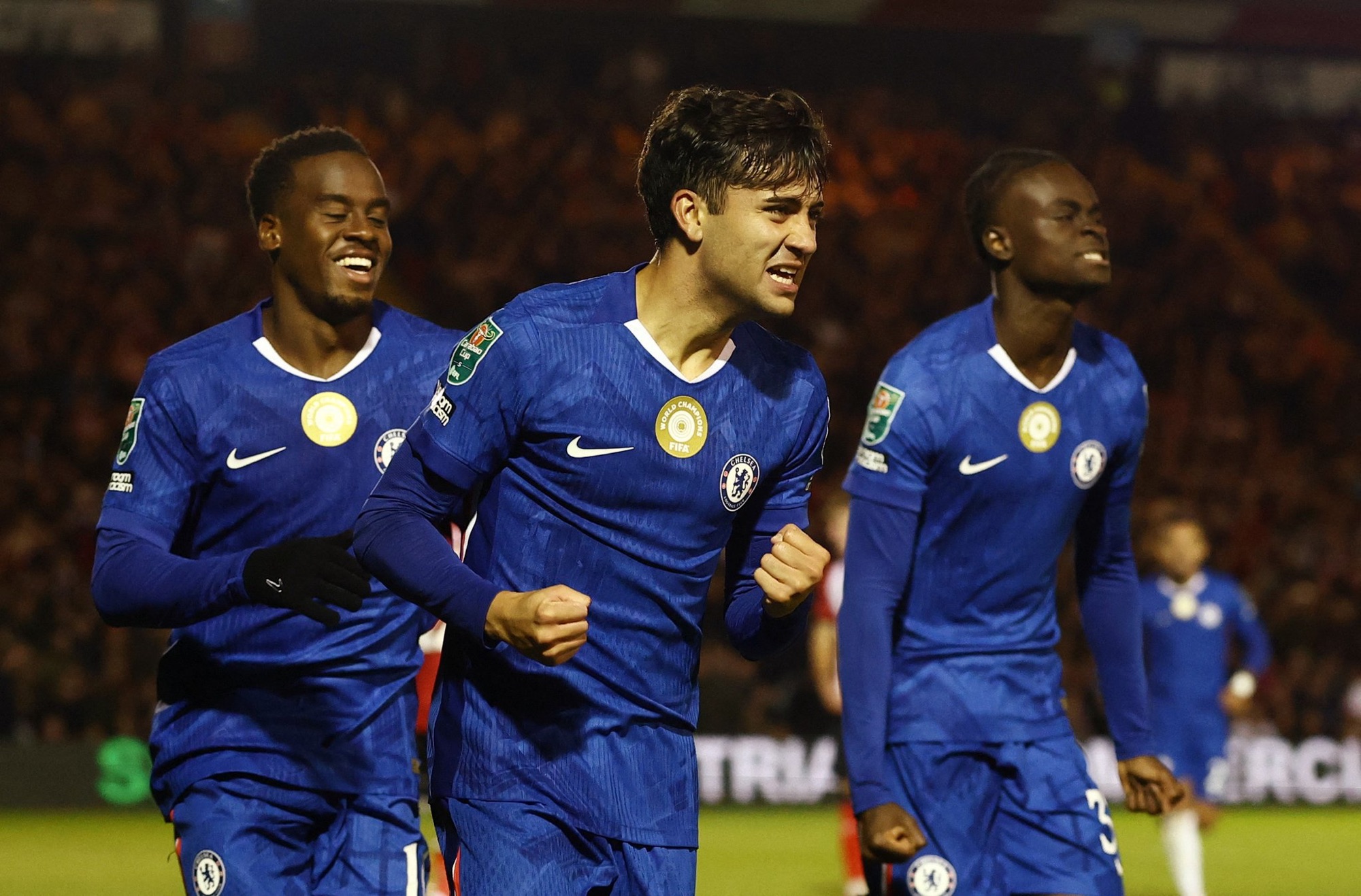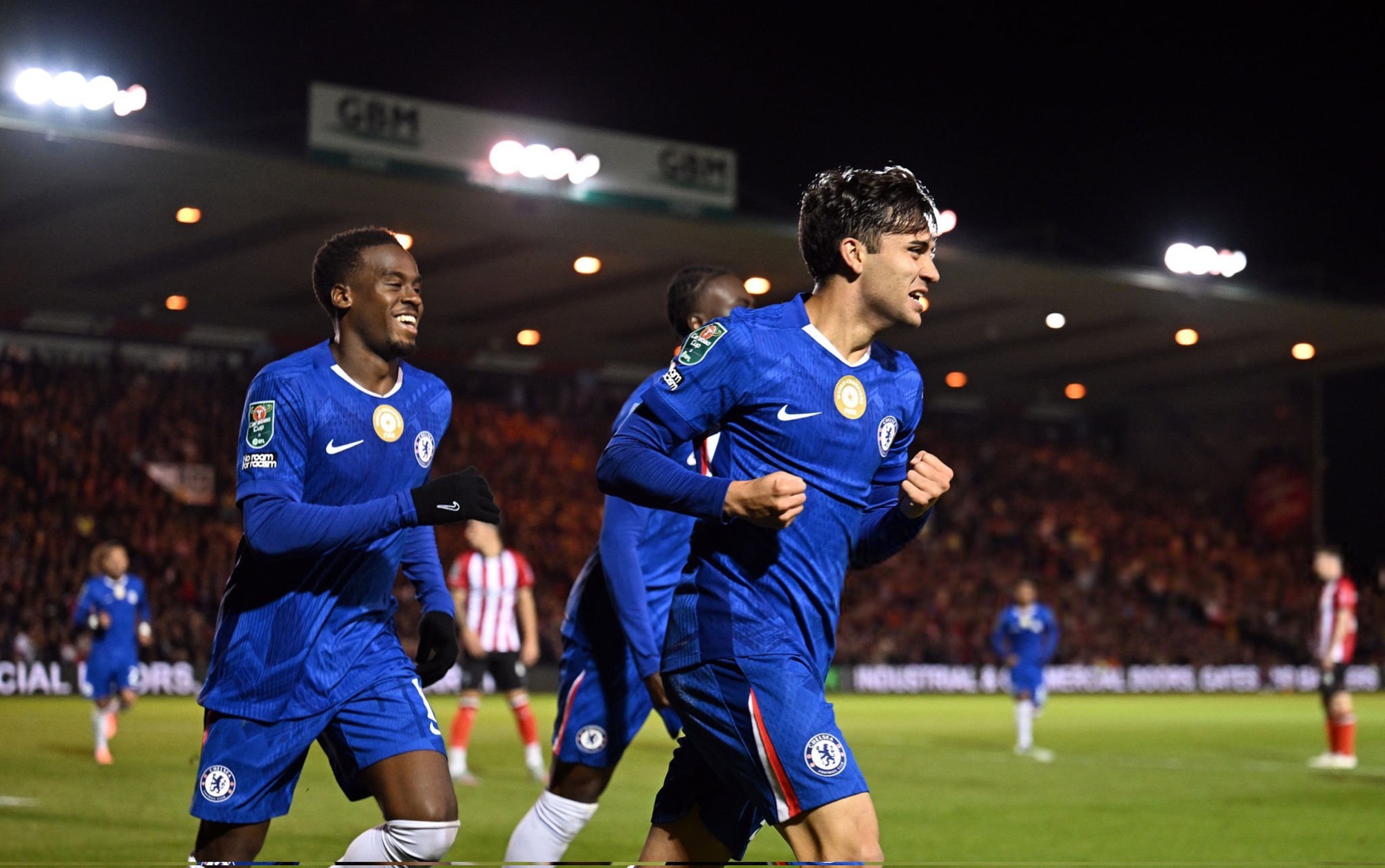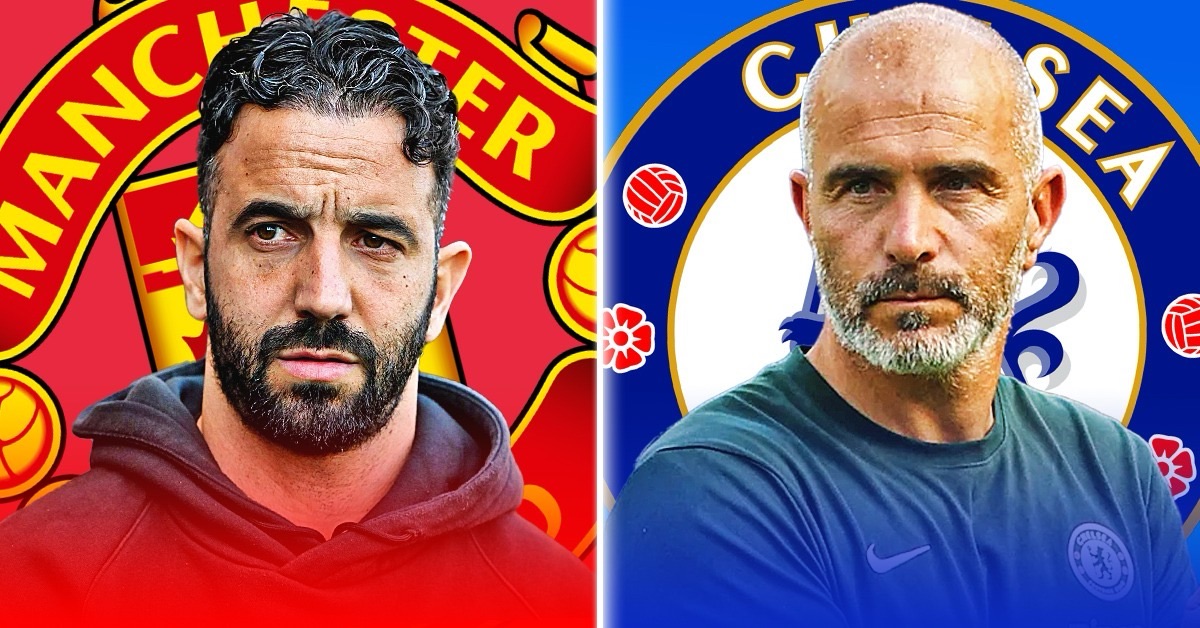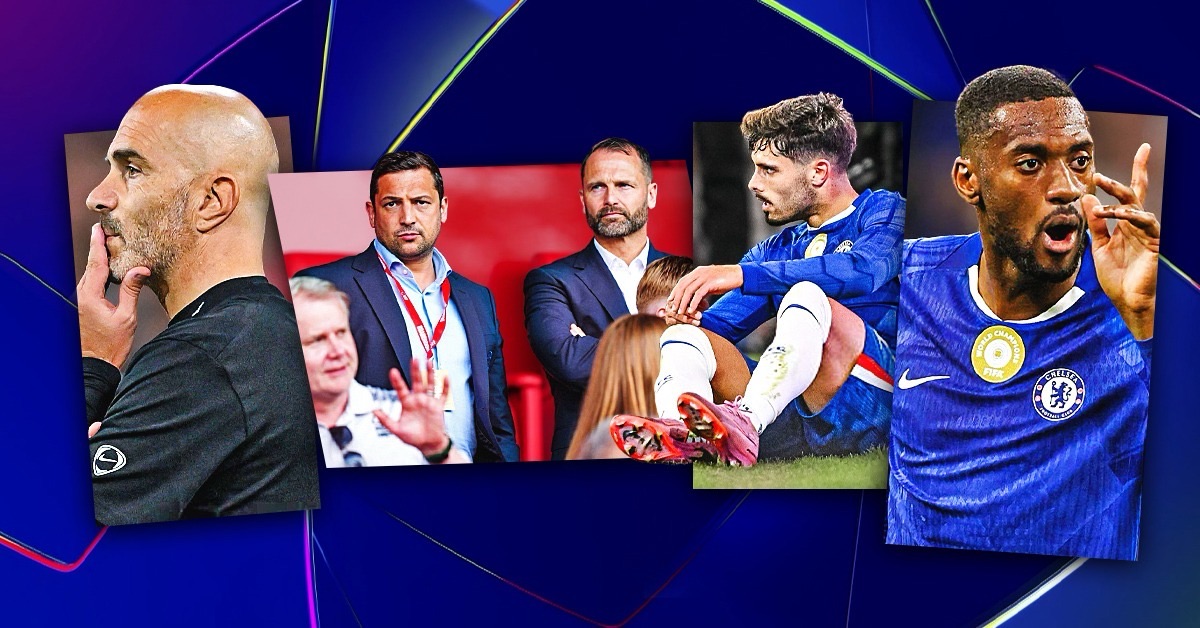No Caicedo. No Lavia. No Reece James. No problem.
On the biggest night of his Chelsea career so far, Andrey Santos, a player who’d barely kicked a competitive ball in blue, stepped into the heart of midfield and played like he’d owned it for years.
Behind him, Malo Gusto delivered a match-winning masterclass in tactical precision.
Ahead of him, Joao Pedro sparkled, and Liam Delap struggled.
And watching it all unfold from the other side was Estevao Willian, Chelsea’s £52m wonderkid-to-be, who lit up the night before saying goodbye to Palmeiras in style.
This wasn’t just a quarter-final win, it was a glimpse into Chelsea’s future, and it looked ready.
Here’s the Inside story on why Chelsea beat Palmeiras, with a touch too on Liam Delap.
Liam Delap: A Lesson in Discipline
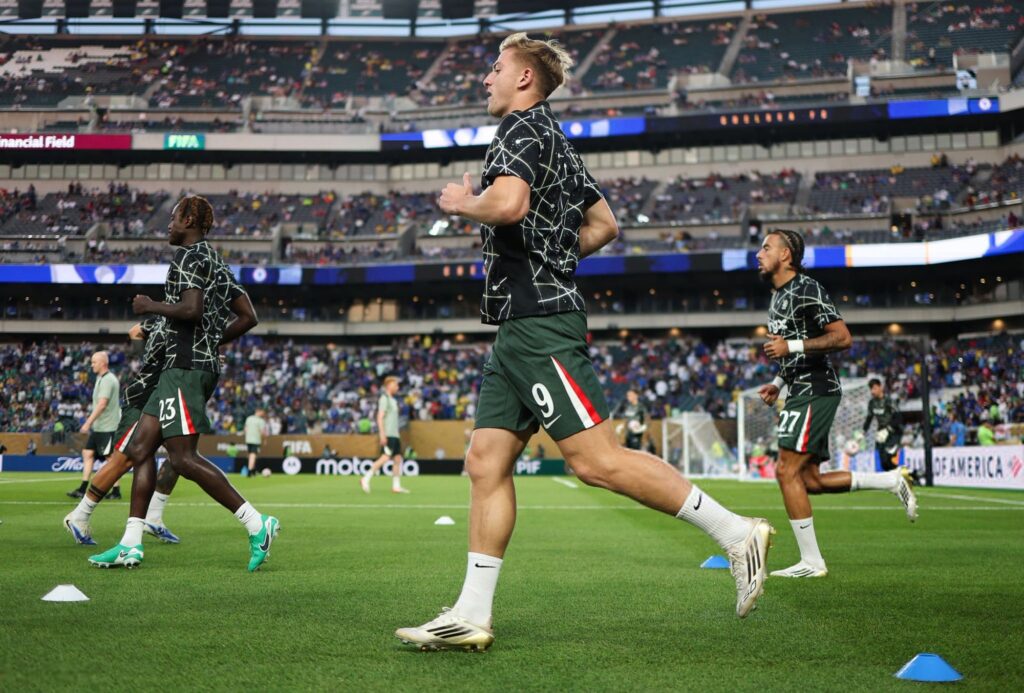
He may not have lit up the stat sheet, but his presence offered Chelsea something different.
When Robert Sanchez was forced to go long, Delap provided an aerial outlet Chelsea have lacked.
Nicolas Jackson often struggles to assert himself in those moments. Delap’s frame and physicality drew defenders out of shape and created space for players like Palmer and Joao Pedro.
There is still development needed. His intensity remains both a strength and a weakness.
Delap’s willingness to disrupt can unsettle defences, but in a tournament where referees are strict with gamesmanship, he paid the price.
A rash challenge earned him a booking that now rules him out of the semi-final.
Premier League officials tend to allow more of that edge, but Chelsea’s forward line already includes Jackson and Joao Pedro, both with disciplinary histories, so managing that edge will be crucial.
Delap’s suspension could now open the door for Jackson to make amends or for Joao Pedro to step up again.
Joao Pedro: Sharp, Slick, and Ready for More
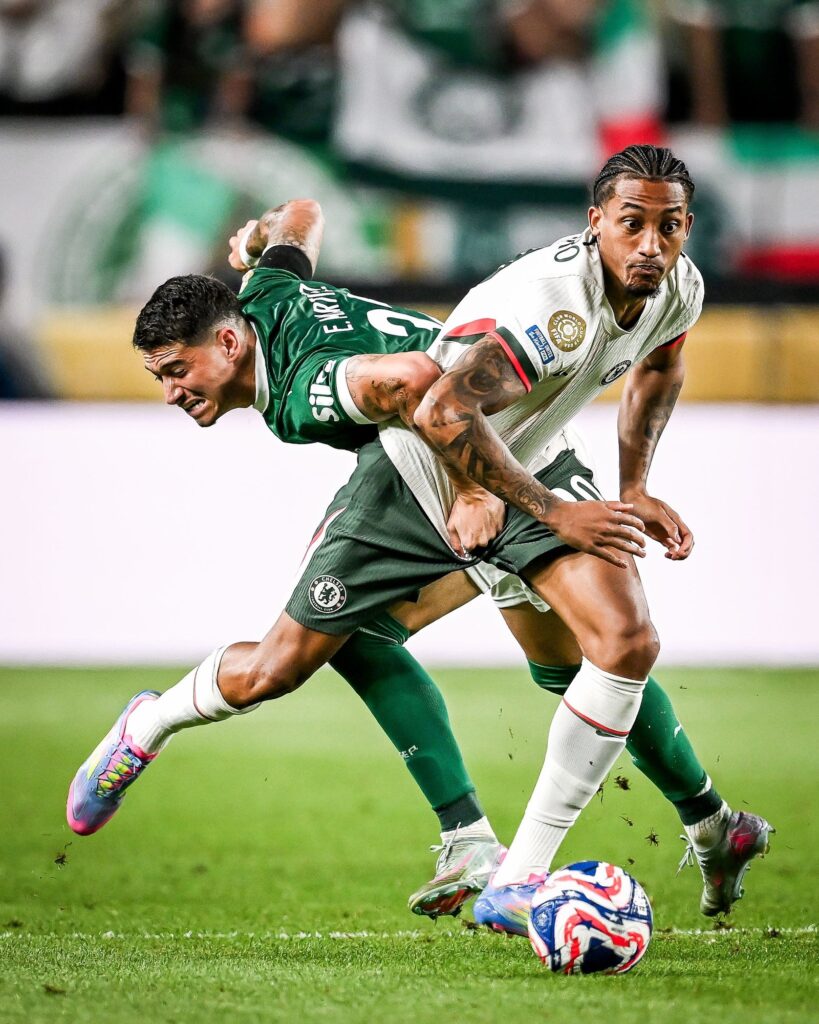
Just two days after signing, Joao Pedro made the kind of debut that hinted at long-term value.
He looked comfortable in tight spaces, linked well with midfielders, and showed quick feet around the box.
One curling effort forced a save, and several other touches helped Chelsea regain control late on.
Where Delap leaned into aggression, Joao Pedro looked calm and focused.
It was a cameo that suggested he already understands what Maresca wants in the final third.
With Delap suspended and Jackson still working to regain trust, Pedro is firmly in contention to start the semi-final.
Discipline remains a long-term concern, but this was a confident and promising start.
Andrey Santos: The Calm in Chelsea’s Midfield Storm
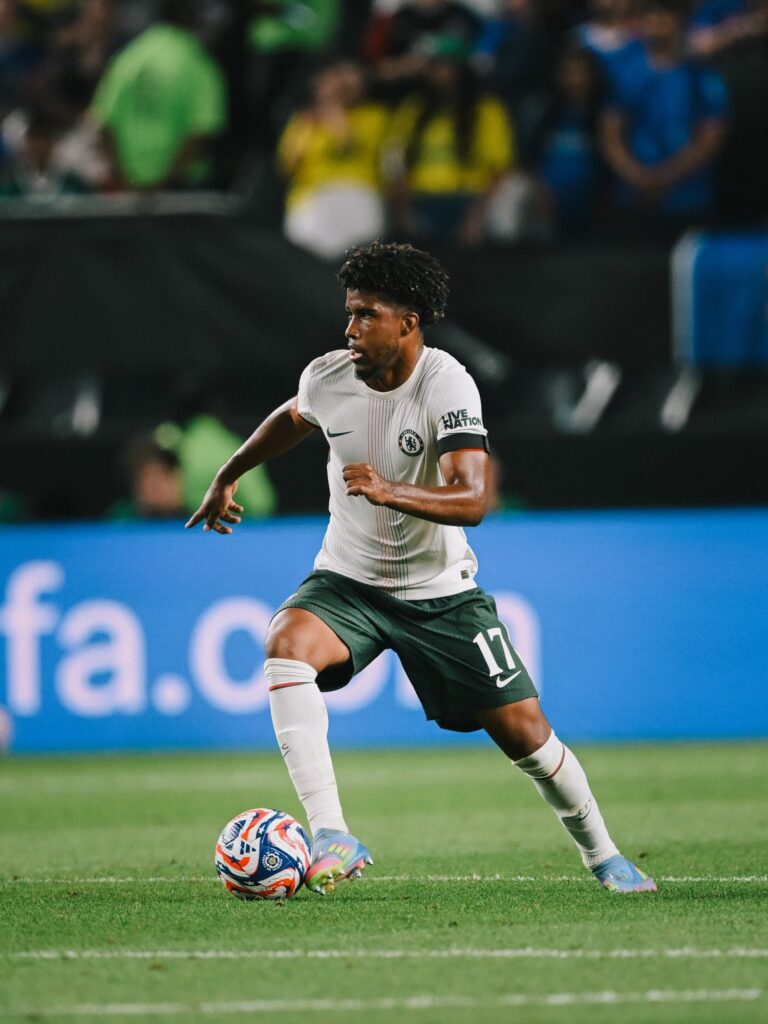
Santos waited a long time for this. With Caicedo suspended, Lavia injured, and Reece James out during the warm-up, he was thrown into Chelsea’s midfield and delivered with confidence and control.
Playing as the lone pivot, Santos recorded 56 touches, completed 90 percent of his passes, and won six of nine ground duels.
He was dribbled past just once and freed up Enzo Fernandez and stayed composed throughout.
This was not cautious. It was assertive. Santos showed tactical discipline, maturity, and positional awareness.
On this evidence, he is not just a long-term option. He is already part of the present.
Malo Gusto: Reborn at Both Ends of the Pitch
Gusto has looked defensively shaky in recent weeks, often exposed at set pieces.
But against Palmeiras, he was transformed.
Solid in one-on-one duels, error-free in and out of possession, and composed from start to finish, Gusto was a key part of Chelsea’s right-side dominance.
His deflected winner was the result of a short-corner routine that has been rehearsed throughout the tournament.
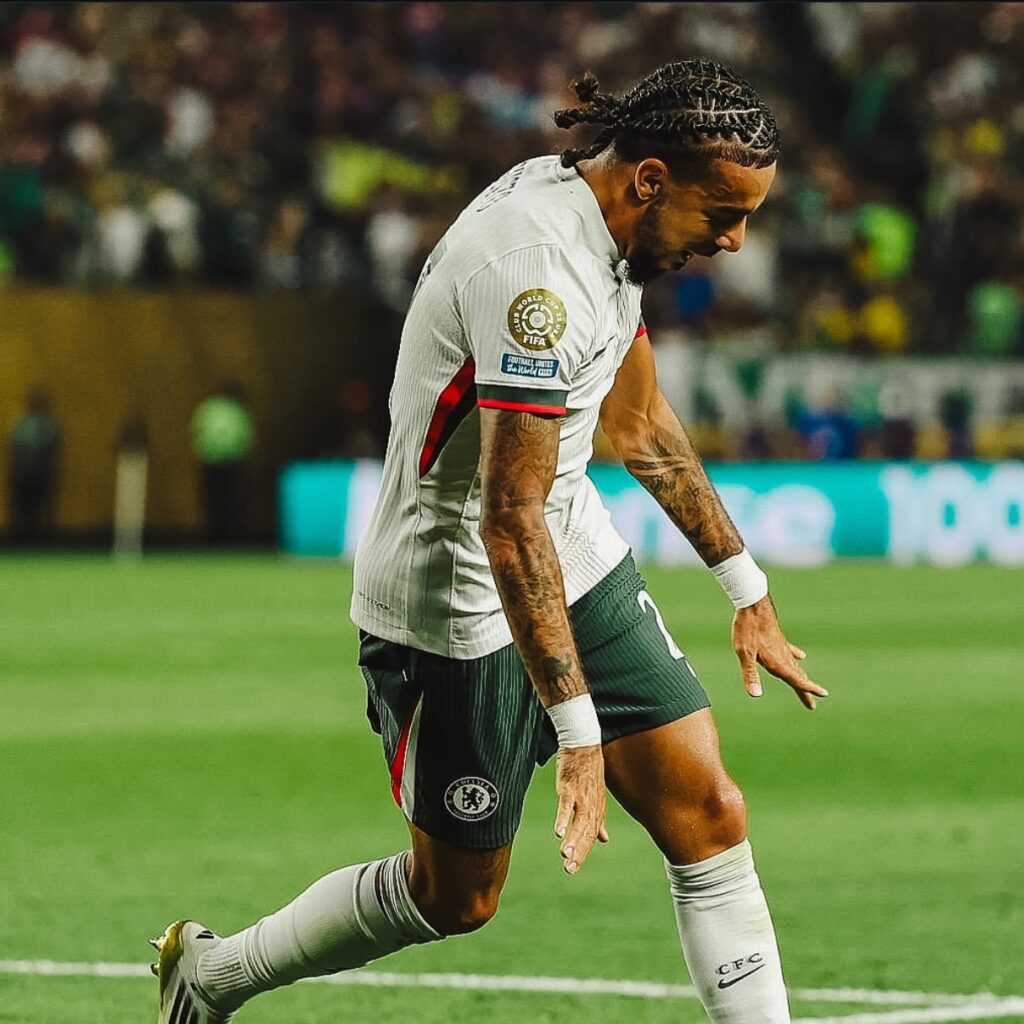
He moved the ball quickly, took intelligent positions and delivered the cross that forced the decisive mistake.
Beyond the goal, he offered a steady outlet and helped create space for Palmer’s opener.
It was a complete performance and one that will restore confidence in his role.
Maresca’s Midfield Without Caicedo: Structure Over Stars
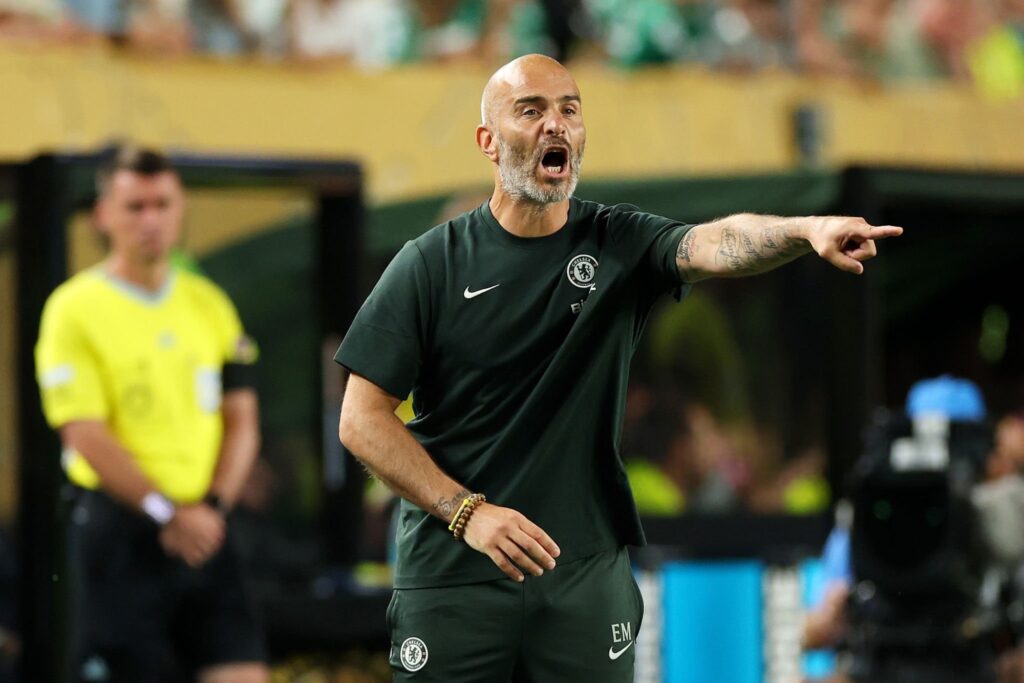
Missing Caicedo, Lavia, and James, Chelsea could easily have looked disjointed.
Instead, they looked organised and purposeful. Santos anchored midfield with calm authority. Enzo operated higher.
Neto and Palmer found space between the lines. Chelsea owned the right flank, with 46 percent of their first-half attacks coming from that side.
Set pieces told the story of preparation. Gusto’s winner was the product of a short-corner triangle involving Neto, Palmer, and Enzo.
Chelsea have taken 64 percent of their corners short this tournament, the highest share of any team – It reflects a coaching staff focused on repeatable solutions.
Even when Estevao equalised with a stunning finish, Chelsea stayed composed.
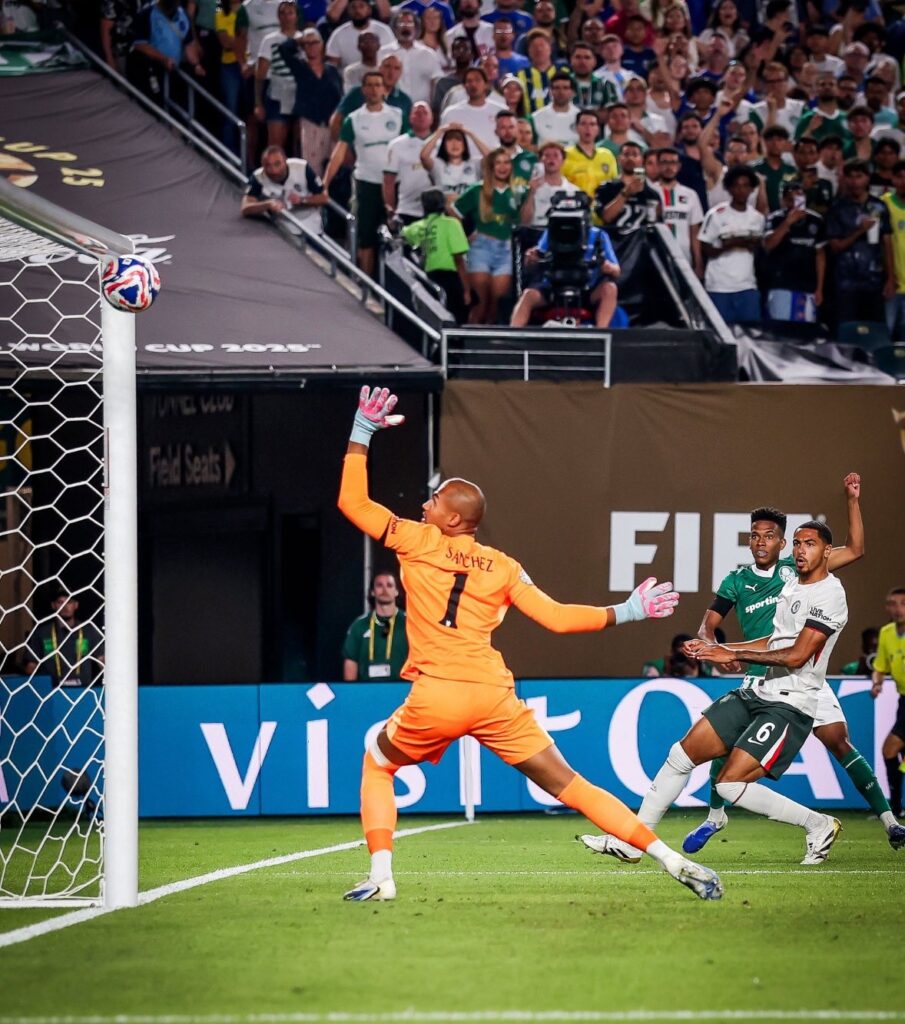
Maresca’s changes restored momentum and control, this was not about grinding out a result.
It was about solving a problem with shape, clarity, and coaching.
The broader takeaway is clear. Chelsea can win without their record signing in midfield.
They can stay composed without their captain and they can now lean on a blend of tactical structure and emerging talent that feels increasingly reliable.

